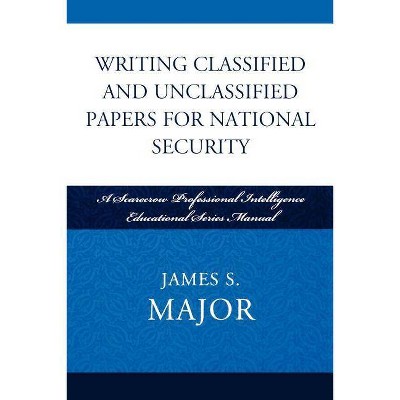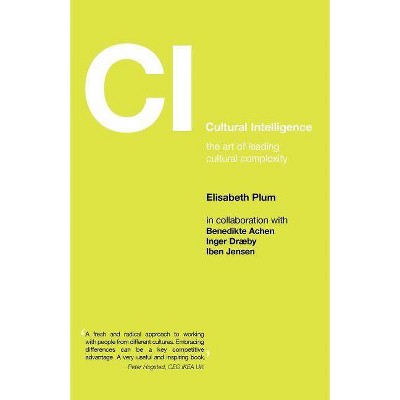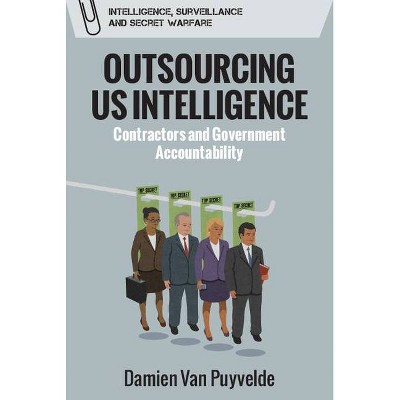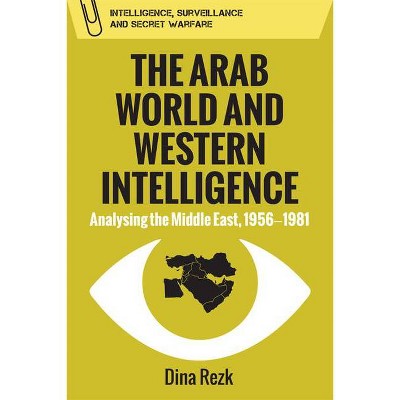Communicating with Intelligence - (Security and Professional Intelligence Education) 2nd Edition by James S Major (Paperback)
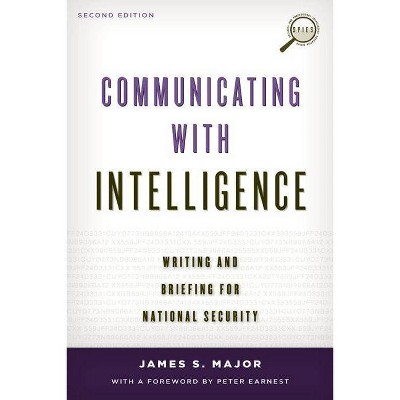
Similar Products
Products of same category from the store
AllProduct info
<p/><br></br><p><b> About the Book </b></p></br></br>Aimed at students, faculty, and practitioners, the book is designed to provide all necessary information on how to prepare, write, and read intelligence publications. This book outlines the foundations of good intelligence communication, a toolkit for writing these documents, ...<p/><br></br><p><b> Book Synopsis </b></p></br></br>Communicating with Intelligence was the first book to teach the skills needed to make sure that papers, reports, and other products be correctly written by intelligence students and professionals. It also responded to the increased number of degrees in intelligence and national security offered in academic institutions. Aimed at students, faculty, and practitioners, the book is designed to provide all necessary information on how to prepare, write, and read intelligence publications: -Foundations of successful intelligence communication -Differences between academic and intelligence writing -How to use arguments -Framework for analysis -Writing toolkit -How the briefing process works -Guide to creating citations -How to handle classified materials -Samples of individual and group exercises This fully revised and expanded edition will be an essential tool for anyone who needs to learn or hone their skills in how to communicate with intelligence effectively.<p/><br></br><p><b> Review Quotes </b></p></br></br><br>A welcome addition to intelligence literature and will be valuable to students and the teachers. (Previous Edition Praise)--Association Of Former Intelligence Officers<br><br>If I could assign people in search of a national security writing guide one book to read, it would be this one. . .Major has found an effective way to teach a very boring topic in such a way that even people who think they already know everything about it will still continue reading. (Previous Edition Praise)--American Intelligence Journal<br><br>In the past, senior U.S. military commanders have complained that the intelligence reports and briefings they received were 'mush' and provided little value to their decision-making. However, writing and briefing intelligence are not easy tasks. In this new edition, James Major greatly simplifies these tasks by delving into the mechanics of transforming raw intelligence into final products that deliver to intelligence consumers the information they need. Through easy-to-understand explanations, numerous examples and practical exercises, and even a healthy infusion of humor, the author teaches the reader how to communicate effectively. This book will be an invaluable addition to the bookshelves of all intelligence professionals, whether newly-minted or veteran.--Christopher A. Vallandingham, USAR, Associate University Librarian/Adjunct Law Professor, University of Florida Levin College of Law<br><br>James Major has written an absolutely indispensable reference on intelligence writing and briefing, one that will become to the emerging Intelligence Studies discipline what Kate Turabian's work has become to the academic profession in general. Mr. Major's work should be made required reading for every graduate and undergraduate Intelligence Studies degree program in the nation. I intend to make it required reading for all of my Intelligence Studies students at American Military University. (Previous Edition Praise)--Jonathan Lockwood "International Association for Intelligence Education, Vol. 29, No 1 "<br><br>Communication is the essence of intelligence. For without being communicated effectively, intelligence merely underwrites ignorance. This fully revised and expanded edition of the noteworthy volume Communicating with Intelligence provides intelligence practitioners with a comprehensive and detailed handbook for effective professional communications. Its chapters set out practical guidelines along with practical exercises for each element of the communications process, from the reading of intelligence source material, to the writing of intelligence reports, to the delivery of intelligence briefings, emphasizing throughout the trustworthy dissemination of intelligence information. This is indeed an encyclopedic manual that should be on the desk of intelligence analysts, managers, and policy-makers. It would also be a valuable asset for academic writers and graduate students in the Intelligence Studies domain.--Martin Rudner, Distinguished Research Professor Emeritus, Carleton University, Canada<br><br>I highly recommend Communicating with Intelligence to anyone involved with competitive intelligence who has to convey the findings of that intelligence to clients or end users. (Previous Edition Praise)--John J. McGonagle "Competitive Intelligence Magazine "<br><br>James Major's new edition of Communicating with Intelligence is full of pragmatic advice that will resonate with both beginner and advanced intelligence students. Major covers every imaginable aspect of writing and briefing for intelligence analysts in conversational (and accessible) detail. Most importantly, he does in one book what other writers have done in several: the book covers grammar, writing, presentation skills, and career advice. For intelligence analysis students and practitioners, Major's book is a must-read.--Melissa Graves, Associate Director and Instructor, Center for Intelligence and Security Studies, The University of Mississippi; Co-Author of Introduction to Intelligence Studies (2012)<br><p/><br></br><p><b> About the Author </b></p></br></br>James S. Major spent 40 years in intelligence, serving in both military and civilian capacity, in assignments at the tactical, operational, strategic, and national levels. He has written 15 books, all published by the U.S. government, and in 1997 he was awarded the National Intelligence Medal of Achievement.
Price History
Price Archive shows prices from various stores, lets you see history and find the cheapest. There is no actual sale on the website. For all support, inquiry and suggestion messages communication@pricearchive.us
